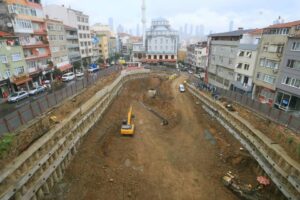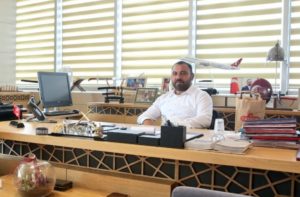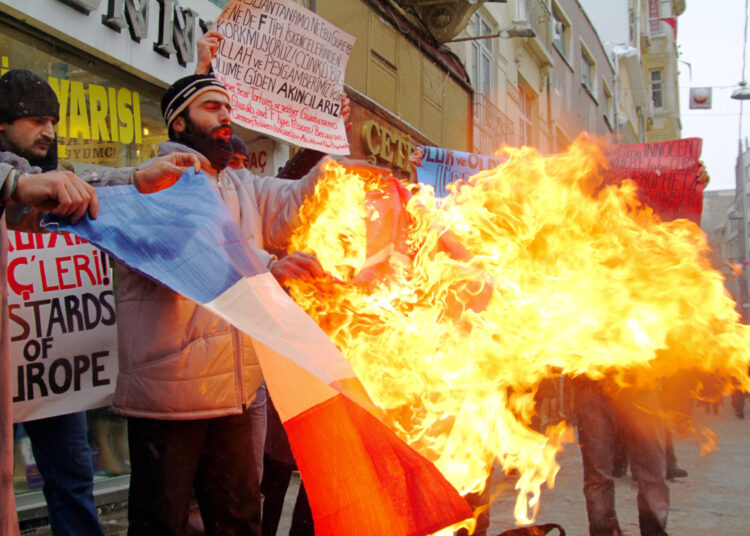Abdullah Bozkurt/Stockholm
The Islamist government of President Recep Tayyip Erdogan has provided covert financial support to a Turkish jihadist terror group with ties to al-Qaeda through local government contracts and donations and has even employed convicted jihadists in municipalities under the control of the ruling party.
The Islamic Great East Raiders Front (İslami Büyük Doğu Akıncıları Cephesi, IBDA-C), which is designated as a terrorist organization due to its involvement in violent attacks and bombings in Turkey, has seen a resurgence during the time in power of the Justice and Development Party (AKP), a party led by Erdogan, who gave IBDA-C a new lease on life.
The Turkish president has also orchestrated the release of convicted members of this organization from prison, including its infamous late leader, Salih İzzet Erdiş, who was also known by his adopted name, Salih Mirzabeyoğlu, and was serving a life sentence. Indeed, the presence of an individual associated with IBDA-C in the role of a chief advisor in the presidential palace underscores the significant influence that this organization appears to wield within the Turkish government.
Today, with the apparent political cover they enjoy, IBDA-C networks have managed to establish multiple organizations in Turkey. They operate with impunity, shielded from crackdowns by law enforcement agencies and unencumbered by legal troubles within the criminal justice system.
Furthermore, these networks cooperate with Turkish intelligence agency MIT, engaging in activities such as mobilizing jihadists in Turkey and abroad. They have also been tapped to incite crowds in the streets when necessary to advance the political agenda of the Erdogan government, making clear the relationship between certain elements within the government and these extremist networks of IBDA-C.

During the Erdogan government’s rule, a recurring pattern has emerged in which the costs of public contracts and tenders are artificially inflated. This manipulation is designed to create opportunities for kickbacks to flow to corrupt businesspeople and politicians. In certain instances, part of the government funds intended for business owners have been diverted to foundations and associations, effectively financing their activities. A similar tactic has been employed in funding IBDA-C cells in Turkey as well.
One specific example of how IBDA-C may have been financed is exemplified by a multimillion-dollar contract awarded to a company owned by Mehmet Sedat Taktak, a convicted member of IBDA-C. This contract was granted by the Kağıthane Municipality in Istanbul, which is under the control of President Erdogan’s AKP. Taktak’s engineering and landscaping firm, Çevre Mühendislik İnşaat San. ve Tic. A.Ş., was awarded a contract worth TL 34.2 million in January 2021 to construct a parking lot and market space for the municipality
The construction project was launched at an event in October 2021 during which the keynote speaker was Governor Ali Yerlikaya. It’s noteworthy that Ali Yerlikaya has since assumed the role of interior minister, responsible for overseeing nationwide law enforcement agencies, including the police and gendarmerie.
The same company, Çevre Mühendislik İnşaat San. ve Tic. A.Ş., also secured a contract valued at TL 40.7 million from the Zeytinburnu Municipality, another local administration under the control of the AKP. This contract, awarded in March 2021, was for the construction of a mosque on land formerly used as a military residential complex. Additionally, the company emerged as the sole bidder in a tender for the construction of a municipal house for Zeytinburnu, securing a contract worth TL 29.1 million in March 2023.
Taktak’s company received yet another contract, this time for the construction of a sports complex for the Esenler Municipality, also controlled by President Erdogan’s party. This contract has a significant value of TL 91.6 million and was awarded earlier this year. While the exact number of contracts awarded to Taktak throughout the years is not known, their value is estimated to be well over a billion Turkish lira.
Nordic Monitor has identified 26 public contracts with a total value of TL 861.6 million since 2011, but it is believed that the actual value could be much higher than this reported figure. There are credible allegations that some of the funds allocated to Taktak’s company may have been redirected to finance operations associated with IBDA-C.
The trade registry data reviewed by Nordic Monitor indicates that Taktak became a shareholder in the company in 2006 and subsequently became the majority shareholder a year later, following a capital injection into the company.
Taktak has been involved in multiple business ventures beyond Çevre Mühendislik İnşaat San. ve Tic. A.Ş. These include a construction firm, Taktak İnşaat Sanayi Ve Ticaret Limited Şirketi, established in 2018, and a real estate investment firm, BSC Yapi Gayrimenkul Anonim Şirketi, set up in August 2020. These companies most likely have also been awarded contracts by local governments.
Trade registry recods of Taktak’s company, Çevre Mühendislik İnşaat San. ve Tic. A.Ş:
Taktak’s history as a fugitive is a significant revelation. His capture by the police on an arrest warrant on June 22, 2000 while being employed as a deputy director at Boğaziçi Peyzaj İnşaat Müşavirlik Teknik Hizmetler Ağaç Sanayii ve Ticaret Anonim Şirketi (BİMTAŞ), owned by the Istanbul Municipality, is noteworthy. The fact that he was appointed to a position within this company by President Erdogan, then the mayor of Istanbul, raises questions about the circumstances surrounding his employment and the potential implications of such appointments.
He was certainly not the only IBDA-C militant that Erdogan helped out. According to a report prepared by Interior Ministry inspectors, two captured IBDA-C militants, Uğur Boyacı and Ali Hışıroğlu, were also on the payroll of another Istanbul Municipality company called Spor Anonim Şirketi.
The employment of convicted IBDA-C militants Ramazan Avsar and Haziret Karagöz by the Istanbul Municipality while it was under AKP control in 2018 is yet another example. According to the conviction ruling issued by Istanbul’s 11th High Criminal Court in 2011, these individuals were part of an IBDA-C cell led by İlhan Doğan, also known by the code name Akın. This cell was implicated in a series of bombings between 2000 and 2001, targeting various establishments, including nightclubs, bank ATMs, pubs, hotels, music stores and retail shops, including a McDonald’s franchise in Istanbul.
A 2018 report issued by the Istanbul Municipality on the distribution of TL 847.6 million to NGOs in the city listed IBDA-C organization Roots Association (Kökler Derneği) as a recipient of the funding. The report did not specify how much of that amount was given to Kökler.
The 2018 Istanbul Municipality report that listed an IBDA-C-linked association as the recipient of public funding:
Another tactic used by President Erdogan to finance the IBDA-C network is the abuse of the trustee system in Turkey where IBDA-C members were appointed to run companies unlawfully seized by the government. The takeover of İpek Media by the government in October 2015, especially on the eve of significant elections, and the appointment of Hasan Ölçer, Mirzabeyoğlu’s point man who had been investigated for his past association with IBDA-C, was a matter of great concern.
In March 2016, when the government seized Zaman, the nation’s best-selling newspaper, on trumped-up charges, again it was Ölçer who was chosen as trustee by Erdogan to run the daily. With his role in two large media outlets, Ölçer was in charge of multimillion-dollar media groups.
Furthermore, hastily adopted legislation granting trustees immunity from criminal and administrative investigations for their actions in such roles added another layer of concern since it bestowed on these individuals a shield from accountability for their actions. As a result, Ölçer reportedly managed to funnel some of the money he controlled to IBDA-C networks under various pretexts until both media groups were closed in August 2016 and their assets plundered.
Istanbul high criminal court ruling that convicted IBDA-C members, two of whom were employed by the AKP-run Istanbul Municipality, in 2018:
The appointment of Hamza Yerlikaya, a former wrestler with alleged ties to IBDA-C, as a chief advisor to President Erdogan and to the board of Vakıfbank, one of Turkey’s major state-owned banks, is yet another indication of how IBDA-C figures were endorsed by the government. The presence of Yerlikaya in the inner circle of the president and on the board of a major state-owned bank underscores the connections between individuals with extremist affiliations and the Erdogan government.
The release of IBDA-C leader Mirzabeyoğlu by the Erdogan government in 2014, followed by a welcoming phone call from President Erdogan to offer support, is a significant road marker. It raised questions about the government’s stance toward individuals convicted of terrorist acts and its approach to counterterrorism measures. The release and support of a convicted terrorist leader by a head of state certainly put the Erdogan government’s commitment to combating terrorism and upholding the principles of justice and the rule of law into question.

Mirzabeyoğlu passed away in May 2018, but his network is still very much alive and is in fact expanding. The IBDA-C runs the recruitment of Turkish jihadists who end up in Syria to fight for al-Qaeda as well as the Islamic State in Iraq and Syria (ISIS). Its militants took to the streets to send a political message when it was found convenient to do so by Erdogan government. The group held protests in front of foreign embassies and consulates as part of tasks assigned by Turkish intelligence.
The fact that there has been no legal or law enforcement action taken against the group in more recent years confirms the shift in government priorities and policies, which can have various implications for national security and counterterrorism efforts, both for Turkey and its allies and neighbors.
Until 2014 the group had been under close monitoring by the Turkish police, which had conducted 17 planned intelligence sweeps against IBDA-C, resulting in the criminal prosecution of its militants. As of August 2009, the police had detained 1,186 IBDA-C militants in total, seizing 146 guns of various calibers and 80 hand grenades as well as explosives components. A total of 219 terrorist acts perpetrated by IBDA-C militants were solved, and 28 terrorist plots in the planning stages were thwarted by the police.
However, those police chiefs who led the effort to crack down on IBDA-C were purged from their jobs between 2014 and 2017. The newcomers who filled the vacated posts observe the government’s redline on IBDA-C and avoid investigating IBDA-C militants.












